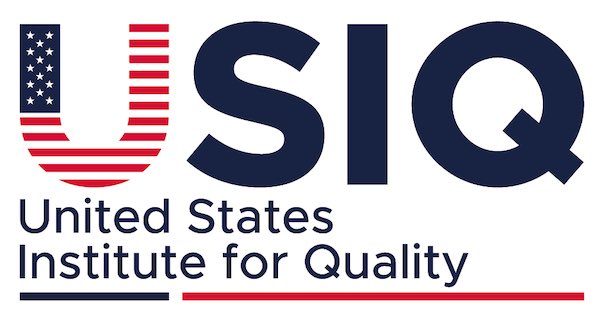|
Getting your Trinity Audio player ready...
|
Working less can lead to more productivity, more innovation, and a more engaged workforce. For this reason, many companies are introducing the 4-day week.
Employees’ needs are changing. After the pandemic, they want more flexibility. Although four-day work weeks sound counterintuitive, many companies are experiencing great results. For instance, after the widespread implementation of the four-day week, most UK companies considered it an “Extremely Successful” experiment.
In this blog, we will examine the four-day workweek. We will discuss its benefits and how it can help your company, as well as share examples of successful companies that have adopted this model.
What is the 4-day Week?
The four-day workweek is an alternative working model in which employees work four days instead of the traditional five while still receiving pay and benefits at their full rate. This typically results in 32-hour work weeks. The idea is to focus on increasing productivity rather than increasing work time.
Benefits of the 4-day Week for Companies

1. Higher Productivity
The four-day workweek often leads to surprising gains in productivity. Microsoft Japan’s 2019 experiment with this model resulted in a remarkable 40% productivity boost.
This trend extends globally, with 2022 trials demonstrating that employees can achieve 100% of their usual workload in just 80% of the time. Alongside this, employers involved in these trials validated the success, rating the productivity improvement an impressive 7.7 out of 10.
We believe this boost in productivity is because of the following:
- Improved Focus and Time Management: Employees must focus on tasks and cut distractions with a compressed workweek, increasing efficiency.
- Reduced Burnout and Increased Energy: An extra day of rest combats burnout, allowing employees to return to work feeling refreshed and motivated, improving retention rates.
- Results-Oriented Work Culture: When pay is not tied to time spent at a desk, the emphasis shifts to achieving goals, fostering a more outcome-driven environment.
2. Happier Employees
The four-day workweek is not just about increased productivity; it also leads to happier employees, lowering recruiting costs. Global trials back this up—over nine out of ten employees said they wanted to continue the four-day week, rating their experience 9.1 out of 10. Key indicators like stress, burnout, fatigue, and work/life balance all showed improvement.
Beyond the numbers, employees reported:
- Improved Physical and Mental Health: The extra day off provides crucial time for self-care and rest.
- Enhanced Work-Life Balance: With better boundaries, employees can dedicate more time to family, hobbies, and personal well-being.
- Increased Life Satisfaction: The positive impacts ripple throughout workers’ lives.
Some extra benefits observed include:
- More Exercise and Sleep: Employees can focus on healthy habits with the added time.
- Greater Family Involvement: This is particularly true for male workers, as demonstrated by the UK study’s 27% increase in childcare time.
3. Environmentally Better
The four-day workweek has a positive impact on the environment. With one less day of work, commute times drop significantly. Trials demonstrated a reduction in average commute time, largely due to fewer people driving to work.
In addition to reducing their commutes, employees seem to adopt more environmentally conscious habits with the added free time. Increases were seen in household recycling, walking, cycling, and buying eco-friendly products.
Studies like the University of Massachusetts Amherst research show a reduction in individual carbon footprints when working hours are decreased, highlighting the four-day week as a potential tool in the fight against climate change.
Companies Using the 4-day Week
Now that you know more about the compelling benefits of a four-day workweek let us see which businesses are implementing it.
1. Bolt
Fintech startup Bolt experienced a significant improvement when it decided to adopt a four-day work week in 2022. Following a successful trial period, they noticed some amazing outcomes: better team spirit, increased efficiency, enhanced staff satisfaction, and a stronger team. Notably, 91% of managers and 94% of workers wanted it to continue.
2. The Wanderlust Group
This outdoor tech company gave its employees Mondays off during the pandemic to help them feel better. The great results amazed the company and contributed to the success of its $14.2 million Series B Funding. Because of these positive changes, the company decided to stick with this schedule for its 50-person remote team.
3. Buffer
Buffer, a company famous for its social media toolkits, introduced a trial four-day workweek to focus on well-being during the pandemic. The positive results led to making this change a permanent policy. After two years, 91% of employees say they feel happier and more productive. Although 27% say they occasionally work on their days off, the overall impact is still very positive.
4. Awin
Awin, an affiliate marketing platform, completed a successful four-day workweek trial with 1,300 employees in 17 offices. The outcomes were very positive: a 13% rise in yearly profits, a notable improvement in customer satisfaction, and a decrease in employee turnover and sick leave. Awin also gives its employees the option of a full extra day off or a modified schedule with three full and two half days.
5. Basecamp
Basecamp, a project-management software company, has a special way of working during the summer months. They switch to a 32-hour workweek, with employees working four days a week from May to August every year. Kris Niles, a former product designer at Basecamp, believes that setting limits is the secret to this approach. By working fewer hours, staff concentrate on important tasks, encouraging efficient and thoughtful work, rather than just working quickly.
6. Bit.io
Tech startup Bit.io introduced a refreshing change in 2019 by implementing a four-day workweek with Fridays off. Founder Jonathan Mortensen stresses the importance of blending technology with efficiency. The team successfully sustains high productivity during the workweek while enjoying extra time for family, personal endeavors, and travel.
7. DNSFilter
DNSFilter, a cybersecurity company, has a unique way of organizing work schedules. They offer employees a four-day workweek, which they switch between working 32 hours one week and 40 hours the next week. This system allows employees to enjoy more three-day weekends while ensuring that all tasks are covered by rotating responsibilities among three groups.
8. The Financial Diet
This company, which focuses on women in social media management, permanently switched to a 32-hour, four-day workweek, and the outcomes were outstanding. Revenue stayed steady each month and year while content interaction and follower numbers increased. The company also achieved its highest profit margins ever. A significant bonus was that staff surveys showed improved time management and work-life balance without any extra work hours needed.
9. G2i
G2i, a hiring platform created by engineers for engineers, offers a 32-hour workweek over four days (with occasional flexibility for client projects). They also care for their employees through the “Developer Health Fund,” which helps prevent burnout.
10. Kickstarter
Kickstarter’s popular crowdfunding platform smoothly adopted a 32-hour, four-day work model after a successful trial. Their blog post emphasizes the great effect on their team of around 90, noting it has brought about “brighter, fuller lives.” This change directly leads to a more revitalized and inspired workforce.
Is the 4-day Week Here to Stay?
The mounting evidence suggests that the four-day workweek may be a workplace revolution here for the long haul. Here is why:
- Resounding Success in Trials: Global trials in 2022 demonstrated that employees achieved 100% of their usual workload just 80% of the time, with employers rating productivity improvements at an impressive 7.7 out of 10.
- Focus on Outcomes: The model fosters a results-driven culture, where value is not measured in hours at a desk but in goals achieved. This aligns with the success seen in trials.
- Happier, Healthier Workforce: Over 9 out of 10 trial employees want to continue with the four-day model, citing benefits like improved well-being and reduced burnout. This enthusiasm and increased energy translate to a more engaged, productive workforce.
- Environmental Impact: The reduced commuting and lifestyle shifts in trials suggest significant potential to combat climate change, further aligning with a growing desire for sustainable, socially responsible business models.
Potential Downside
While the outlook is overwhelmingly positive, there are a few points of caution:
- Industry Matters: While adaptable to many, the feasibility of a four-day week may vary by industry. Some roles requiring consistent presence or tied to production schedules might require a more nuanced approach.
- Maintaining Standards: As seen with Buffer, some employees might work on their day off to catch up. To maximize the model’s benefits, it is crucial to prevent this from becoming the norm.
Overall, the compelling results, positive employee outlook, and potential for societal benefits suggest the four-day workweek is far more than a trend. It has the potential to redefine how we think about work itself.
A 4-Day Week Is Not The Only Way to Get Top Talent
The four-day workweek is appealing, but it is not the only method to attract excellent employees. Getting certifications from reputable organizations like the United States Institute for Quality (USIQ) can also be very effective.
When you earn USIQ’s “Top Employer” or “Family-Friendly Employer” certifications, you show that you care about your employees’ well-being and work-life balance. This can help you gain the trust of job seekers who really care about these things. Plus, the certification process, which includes getting employee feedback, can give you valuable advice on improving your company.
For more information about how to get started today, consider contacting us.
Related Articles
The current fast-paced job market demands essential adaptability from both workforce members and organizations. The technological changes in industries and [...]
A successful social media marketing strategy for B2B success depends on trust development while sharing valuable content that targets decision-making [...]
Every employer understands the importance of retaining their employees because this is one way through which their business can grow [...]
Email marketing represents an effective strategic tool for business growth in the online field. Your email marketing strategy requires active [...]




